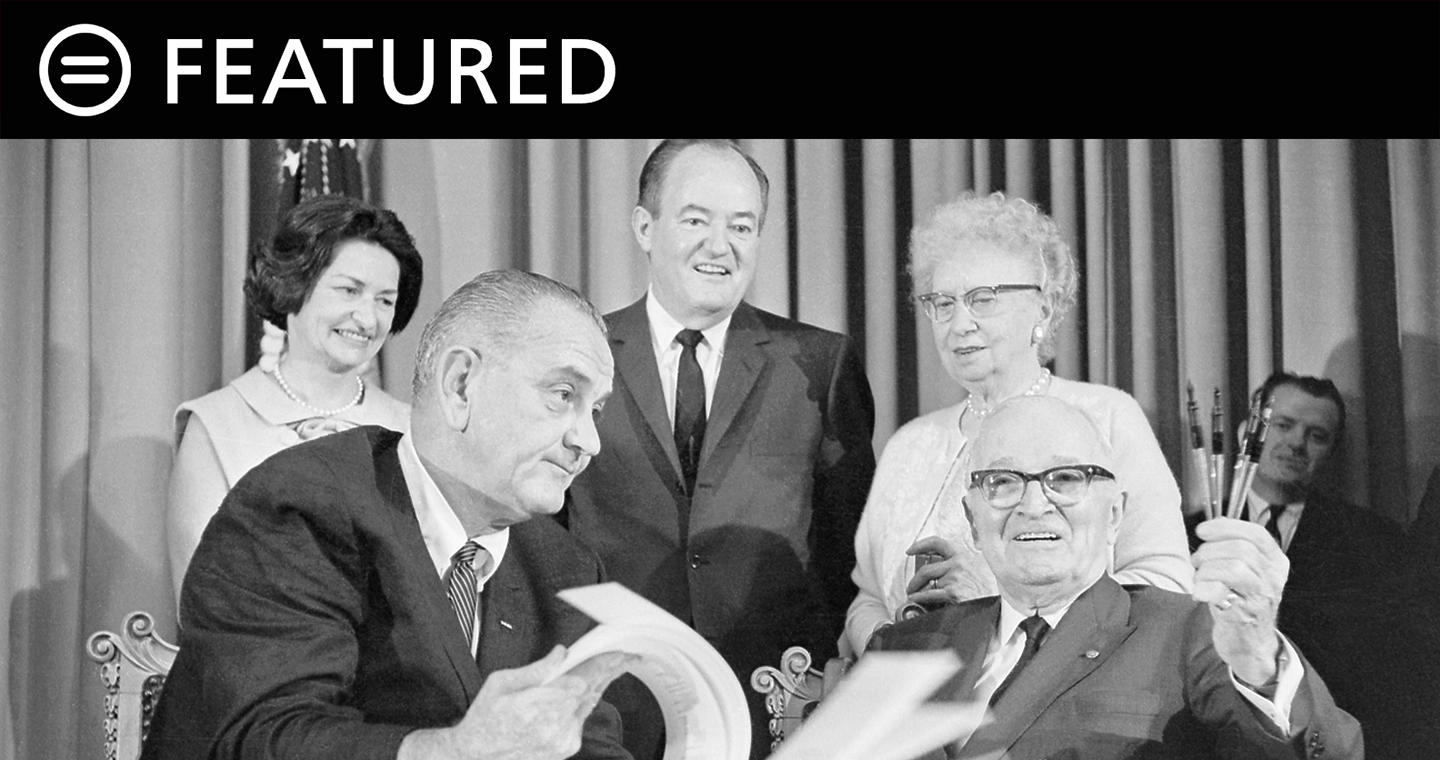Medicare and Medicaid at 60: A Legacy at Risk

Medicare and Medicaid have protected Americans’ health for 60 years, but now that legacy is under threat.
On July 30, 1965, President Lyndon B. Johnson signed the Medicare and Medicaid Act into law, expanding health care access for millions of Americans. These landmark programs, part of the Social Security Amendments of 1965, changed lives then and continue to do so today.
Medicare is a federal health insurance program primarily for people aged 65 and older, as well as for individuals under 65 with certain disabilities or medical conditions. Since it is a federal program regulated by the government, Medicare coverage is available no matter what state you live in. Medicare was created to ensure older Americans, many of whom worked their entire lives, could access health care in retirement. Given that our health insurance is employee based, Medicare fills a vital gap for many retired adults or those unable to work and is the only affordable path to essential health coverage.
Medicaid, on the other hand, is a joint federal and state program that helps cover health care costs for people with low incomes, including children, pregnant women, people with disabilities, and many seniors. Unlike Medicare, Medicaid eligibility and benefits can vary by state. In most cases, enrollees pay little to nothing for medical services. Between both programs, many individuals are “dual eligible,” meaning they qualify for and depend on both programs for their health care needs. These individuals, who are often older and have a lower income, stand to lose critical coverage from the recently passed legislation.
Today, these programs serve over 66 million Medicare beneficiaries and more than 70 million Medicaid enrollees—making them two of the most trusted and relied-upon public programs in the country.
What’s at Stake Now:
Earlier this month, President Trump and Republican lawmakers passed what they called the “Big, Beautiful Bill.” Despite the name, the bill includes devastating cuts to Medicaid, slashing more than $900 billion from the program over the next 10 years. These cuts are expected to leave 10 million more people uninsured.
Though lawmakers promised that the bill will not directly cut Medicare, its impact on dual eligibles is clear. Because Medicare and Medicaid are so interconnected, reductions in Medicaid funding will almost certainly disrupt or reduce access to Medicare services as well. Additionally, the projected increase in the federal deficit may trigger up to $500 billion in automatic cuts to Medicare.
The ACA Is in Danger Also
Along with Medicare and Medicaid, the Affordable Care Act (ACA) is also under threat. The ACA was explicitly designed to fill gaps in coverage that were not addressed by Medicare and Medicaid. It did so by expanding Medicaid eligibility to more low-income adults and creating subsidized health insurance marketplaces for those who did not qualify for public programs but were still uninsured. Now, unless Congress acts soon, the premium ACA tax credits which help families afford health plans through the marketplace will expire on September 30th.
Without those credits, health insurance premiums could skyrocket, forcing many families to pay hundreds or even thousands more each month to maintain coverage. If Congress does not stop the credits from expiring, up to 20 million Americans could lose their insurance, sparking a new health and economic crisis by 2026.
Organizations like the National Urban League and other advocacy groups are fighting hard to protect these programs and calling on Congress to act.
What Is Next:
Now more than ever, it is essential to raise our voices. In just six months, the Trump Administration has set fire to policies and entire departments dedicated to protecting civil and human rights, including those that worked tirelessly to grant Americans access to affordable healthcare, dragging this nation into a state of emergency.
Most will agree that health care is a civil right, and we must protect the programs that ensure that they are right for everyone regardless of age, income, or zip code. All Urban Leaguers must continue to support efforts on the front lines to protect health equity and access.
Sixty years ago, Medicare and Medicaid were created to expand opportunity and security. This Administration is working hard to ensure that legacy is undone. We must continue to fight to keep health care as a fundamental human right so that generations to come can be healthy enough to achieve health justice.

